She started out as a student at the Maritime Academy in Vlissingen, and now she's at the helm of the Maritime Officer program (MAROF). Bertha Ooms has a deep passion for the maritime industry. She calls it "Vitamin Sea." As a program manager and instructor, she instills this passion in her students every day.
From the engine room to the classroom
Bertha's career began at sea. As a student, she started on the boulevard in Vlissingen, where she learned what it means to be a seafarer. She spent 10 years as a (chief) engineer and therefore knows the profession inside and out. "At sea, you learn not only about machinery and processes," she says, "but also how to work together, how to persevere when things go wrong, and the importance of safety. I still bring those experiences into my work every day."
After her years at sea, she transitioned to education. First as a teacher, later she also became an internship coordinator, and now she is a training manager. Yet she consciously continues to teach. "I want to stay connected with the students. That personal contact makes the work valuable. As a training manager, you can make plans and establish structures, but in the classroom, you see what truly matters."
The sea never lets you go. I want every student to discover that passion too.
Working in a close-knit team
The MAROF team consists mainly of former seafarers. "This way, students learn from people who have lived the profession themselves. We know what it's like to step aboard for the first time or to work with an international crew. We share that practical experience, and that's what makes the program so strong. We speak the same language, the sea is in our DNA, and we are incredibly committed to our students and the professional field."
Bertha also sees this reflected in the professional field. "Our alumni are in demand in the sector. They can work anywhere, on board and ashore." She maintains frequent contact with former students from the program. "That's invaluable to us. They bring so much back to the program; it helps us prepare future generations."
Bertha's work day
"There's no such thing as an average workday for me, but I'd love to give you a glimpse into my workday," says Bertha. She's happy to share a day of her work with you, her colleagues. From administration to meetings and from practical training to classes.
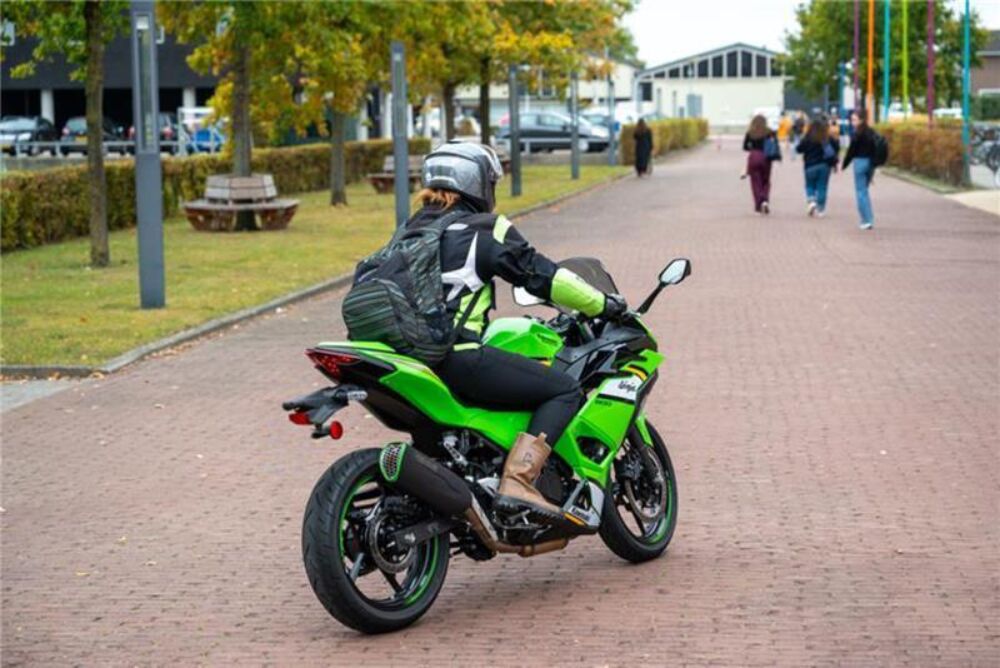
08.30 AM - 10 AM: Starting the day
I usually start the day by checking my inbox. Today I'm working from home, but that's more the exception than the rule. It's my opportunity to get an overview; what does my day look like? A cup of tea, and I can get started. When the weather's nice, Bertha comes to school by motorbike. "It's a great way to clear my head and enter HZ with renewed energy."
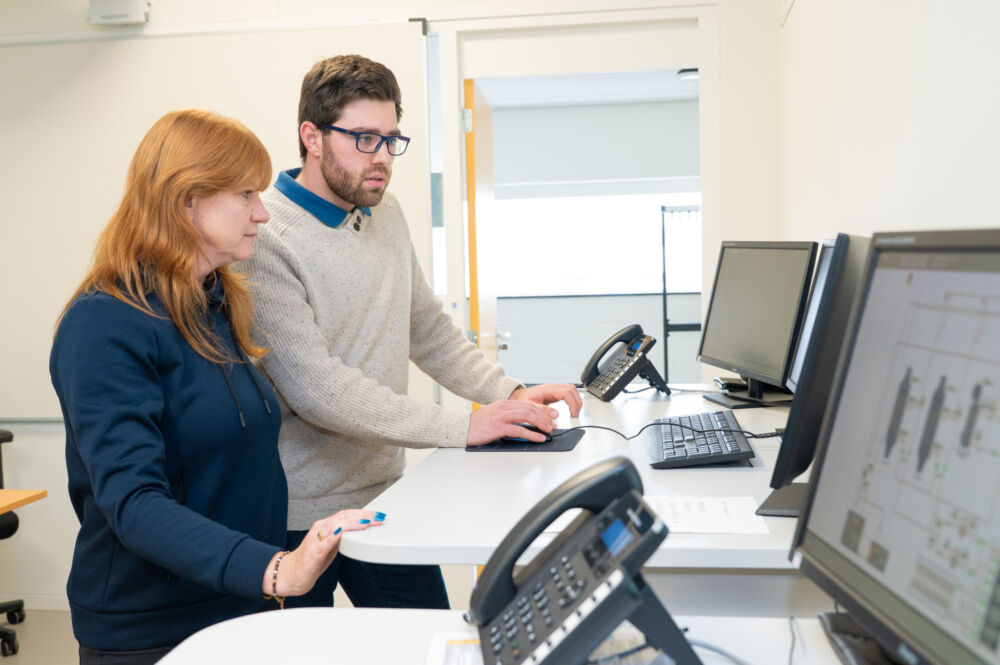
10 AM - 10.30 AM: Meeting with former student Jack
When Bertha arrives at the school, she has a brief meeting with Jack, an alumnus of the program who now works in the maritime sector. Together, they discuss preparations for an upcoming maritime event, where students and alumni meet and get acquainted with their potential employers. "Jack is a great example of someone who completed the program and is now actively contributing to inspire the next generation of maritime officers. Contacts like these keep the program current and relevant. They literally bring the professional field into the school. It motivates the students to see what's possible after graduation."
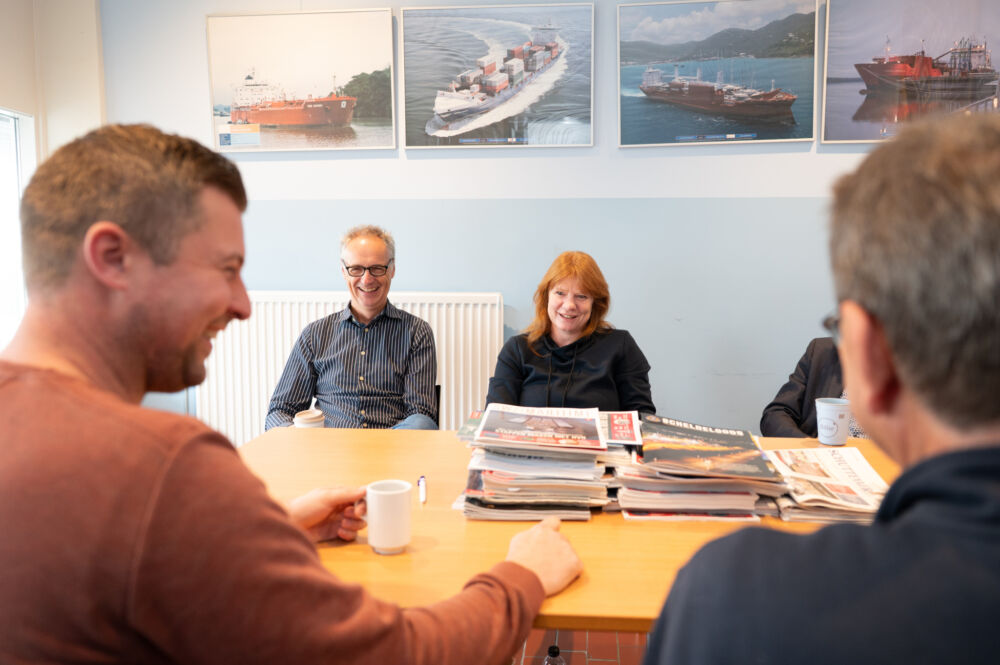
10.30 AM - 10.45 AM: Coffee with colleagues
Midmorning, there's a fixed point in the day: a short coffee break in the "MAROF coffee room." "This is an important meeting place for our team and a key part of our team-building. We spend every break here with the team. It's actually too small a place for our team, but it's far too cozy. We discuss everything here." This moment is better known among the team as "pitched pitch." "In the days of wooden ships, people had to wait for the pitch to heat up, which meant a pause in work. These days, the term is still used in the shipping industry, and we'll keep it."
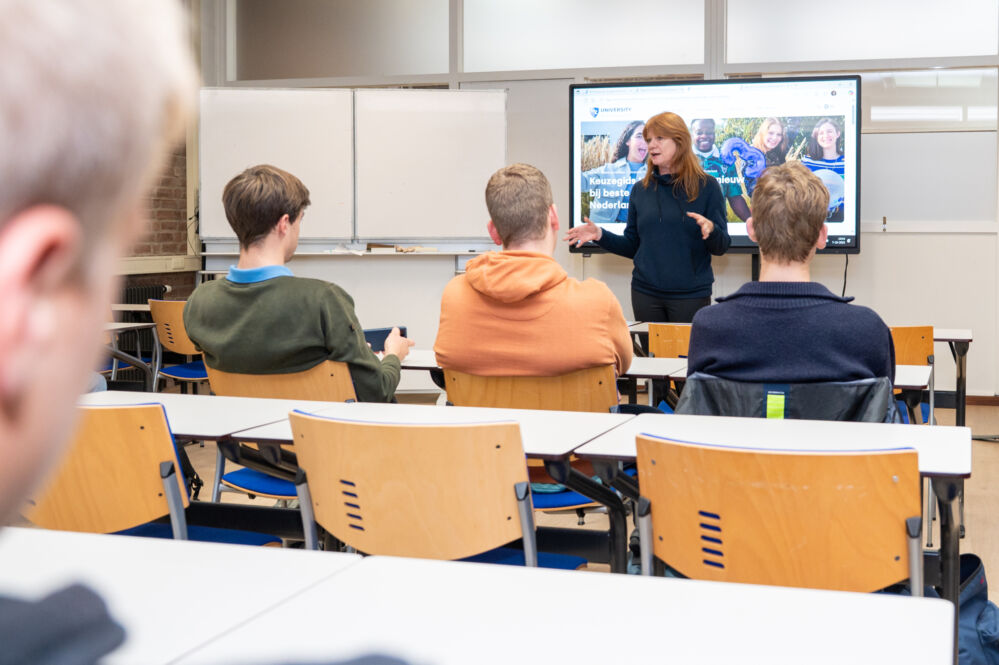
10.45 AM - 12 PM: Study career guidance in L0.31
Bertha spends the second part of the morning leading a group of students. It's a study career development (SLC) lesson. "During these sessions, I talk to students," Bertha explains. "Personal contact is very important to me. The meaning of my work truly comes from watching the students grow. They arrive as boys and girls, after their first six-month internship at sea, they are young men and women, and after graduation, they leave as tough guys and gals. Real sailors. Guiding that process, together with a team that also knows life at sea, is a joy for me every day. The sea never lets you go. I want every student to discover that passion too."
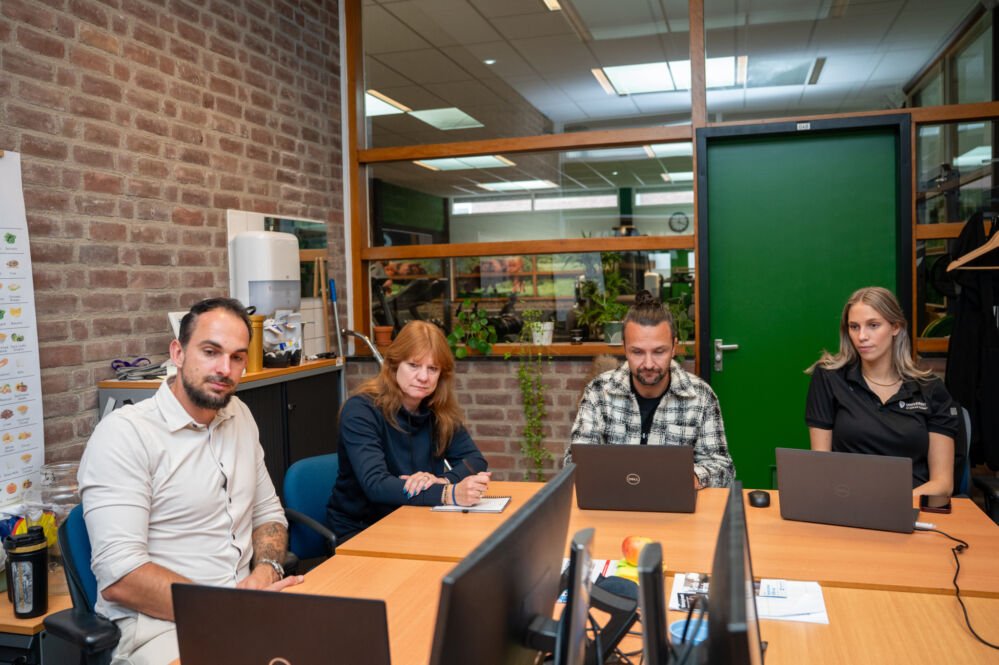
12.15 PM - 12.45 PM: Meeting at the Vitality Centre
After class, Bertha joins the Vitality Center for a meeting about the New Energy During Your Study (NETJS) week, a program specifically for students who are taking longer than usual. "We're looking at how we can provide extra support to students who are taking (or are at risk of taking) a little longer to complete their studies. Sometimes they just need a little push: motivation, perspective, or a different approach. It's important to show them they're not alone, that we're here to guide them toward the finish line."
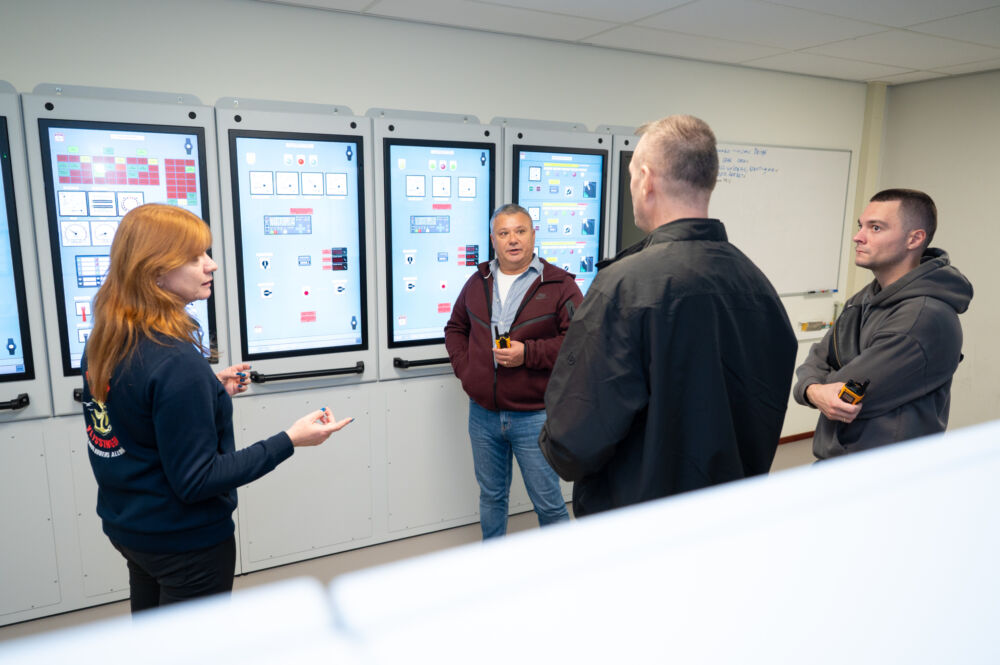
1 PM - 2.30 PM: Training in the engine room simulator
An Engine Room Resource Management training course is scheduled for the afternoon. These courses are organized in collaboration with partner De Ruyter Training & Consultancy. Professionals from the maritime and offshore sectors from around the world come to Vlissingen to participate in these courses and thus maintain their navigation license. The participants work in the engine room simulator. "For these professionals, we can create situations you wouldn't normally encounter in real life, such as a major malfunction or an emergency. Their knowledge and management skills are refreshed in a practical environment."
Bertha regularly runs into alumni of the program; today, it's Martijn. "It's a sense of pride to see him so successful in his career. Our program has made a significant contribution to that. It's great to maintain a close relationship with alumni. We'll also see Martijn again in February at the Shipping Day, where he'll be talking to students about recruiting interns."
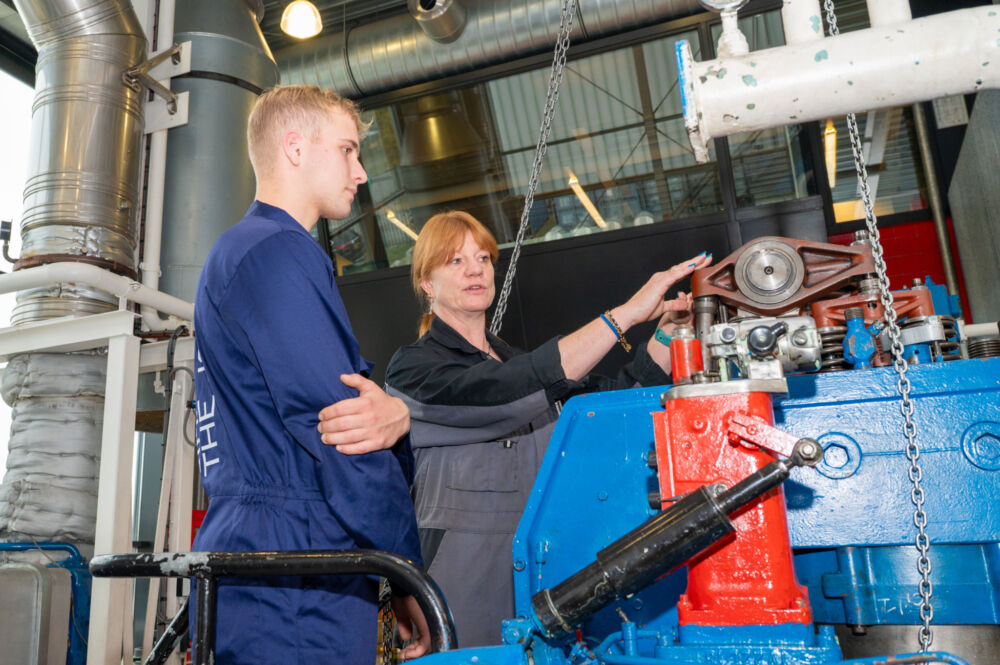
2.45 PM - 4.15 PM: Practical lessons at Technum
The final part of the workday takes place in the Technum engine room. "Here, the students truly experience what it's like to work in the engine room. You can't learn about the machinery, the sounds, the maintenance of the installations, and the responsibilities that come with it from a book. The fact that we have this space, together with Scalda, for practical learning and working, is a real asset to Zeeland's maritime education."
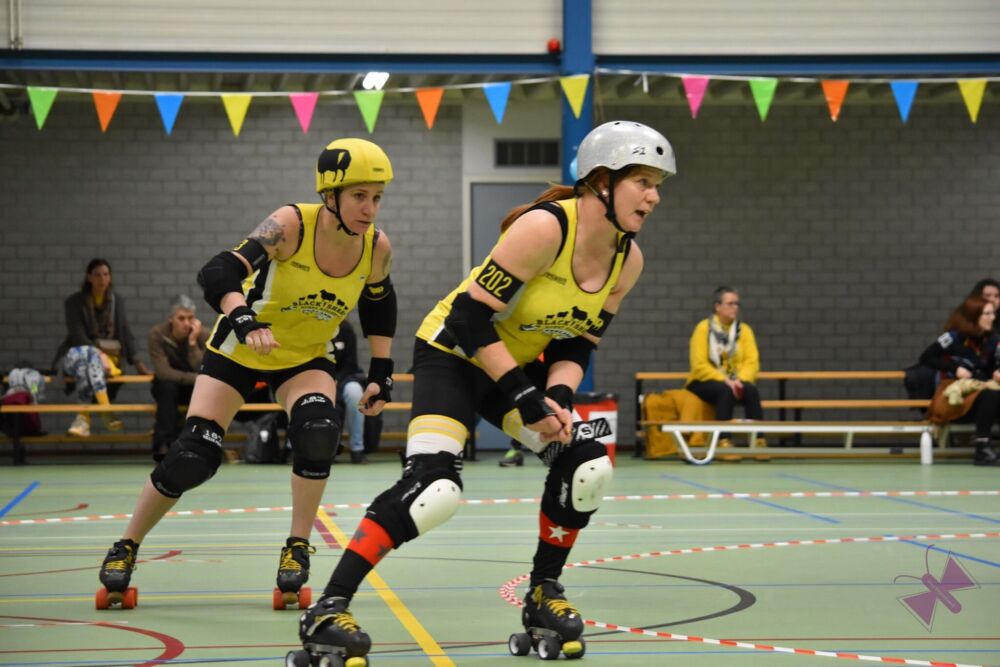
After working hours: Blowing off steam
After a day at HZ, Bertha likes to hop on her roller skates for a game of roller derby as an active way to end the day. She's a member of the Black Sheep Honey Rollers, the only roller derby club in Zeeland. Roller derby is a full-contact sport on roller skates where one skater per team scores points by overtaking opponents. "That's my way of letting off some steam. It's intense, physical, fun, and gives me a lot of pleasure. You have to be sharp, just like at sea, but in a sports hall."
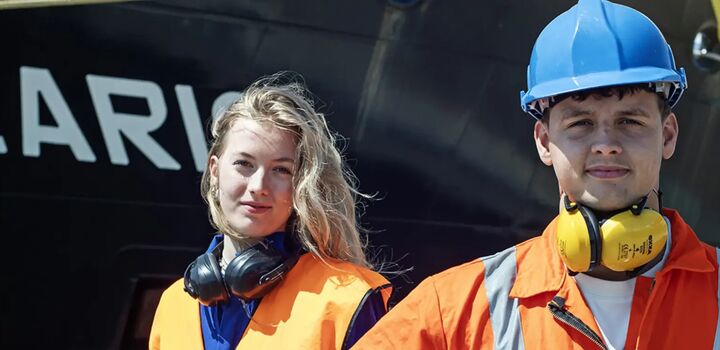
Maritime Officer
As a Maritime Officer, the harbour or the sea is your home. You love working with ships, whether they are sailing at sea or moored in the harbour. Are you that sailor? Then choose the Maritime Officer study programme.
Read more about this study programme